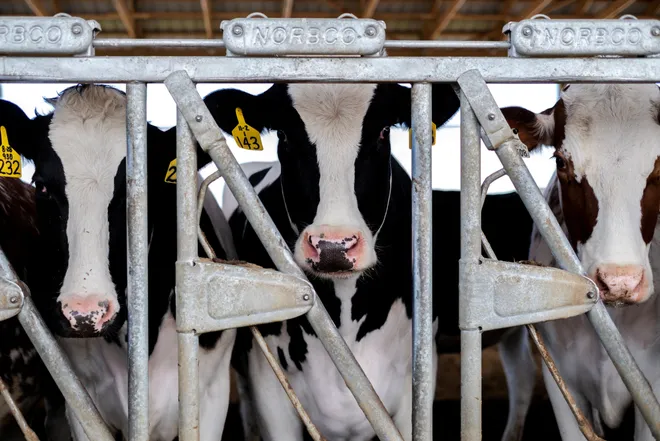Farmworkers face high-risk exposures to bird flu, but testing isn’t reaching them
Farmworkers, facing significant exposure to the bird flu virus, are grappling with limited resources if they fall ill, advocates warn.
To date, only two individuals in the United States have tested positive after encountering the bird flu spreading among cows. These individuals, dairy farm workers from Texas and Michigan, experienced eye irritation as a result.
However, scientists caution that the virus could mutate, potentially leading to person-to-person transmission and triggering a pandemic. Monitoring farmworkers could serve as a crucial method for tracking infections, assessing their severity, and identifying any increase in transmissibility.
Yet, farmworkers typically refrain from seeking medical attention due to factors such as lack of health insurance and paid sick leave. Elizabeth Strater, from United Farm Workers, highlights that these workers often only seek medical help when their condition worsens significantly.
Strater estimates that around 150,000 individuals are employed in U.S. dairies. She suggests that the virus may have spread to more people than reported due to the passive nature of surveillance efforts.
Federal officials have acknowledged the need for increased testing among farmworkers and have introduced a program offering $75 incentives for testing. However, Strater expresses skepticism, noting that testing positive could result in financial strain for workers, who may be unable to afford to stay home from work.
Katherine Wells, the director of public health in Lubbock, Texas, explains that while short-term medical care may be provided to affected farmworkers, concerns regarding job security and income loss remain prevalent.
Moreover, there are concerns within immigrant communities that increased attention to cases among farmworkers could lead to anti-immigrant sentiment. Monica Schoch-Spana emphasizes the importance of conducting educational sessions in a language farmworkers understand, led by trusted individuals.
Georges Benjamin stresses that public health investigations will not report immigration status. Nonetheless, Dawn O’Connell mentions that decisions regarding offering vaccines to farmworkers have not been finalized.
Additionally, states such as California, Texas, and Wisconsin have offered to distribute personal protective equipment to farm owners. However, Strater suggests that practical considerations, such as the suitability of equipment for the work environment, must be taken into account.
Overall, the unique challenges faced by farmworkers in preventing and managing bird flu infections underscore the need for tailored and comprehensive public health initiatives.




